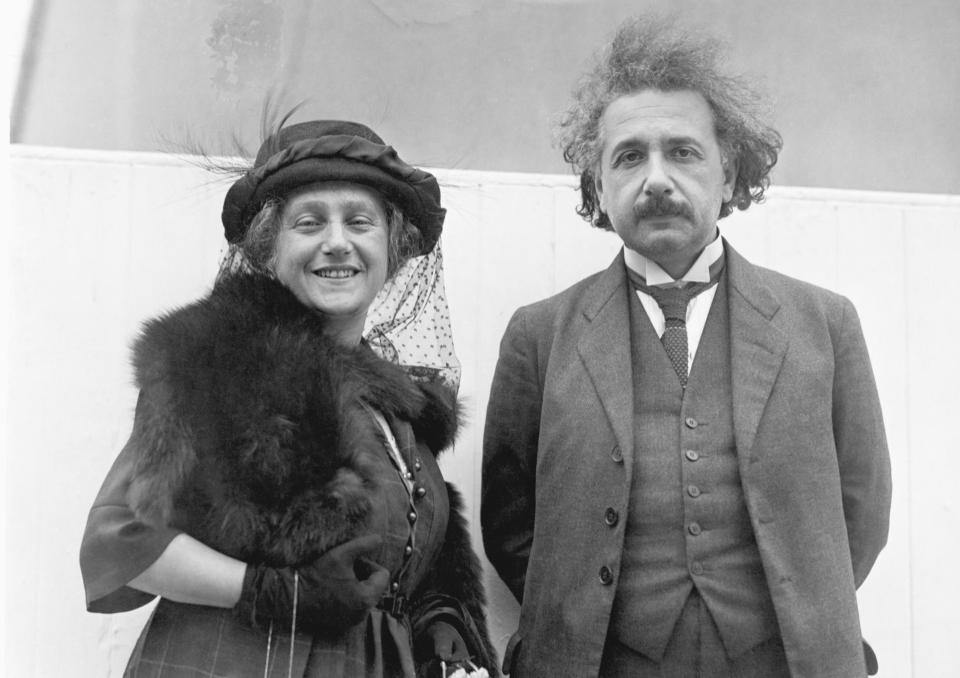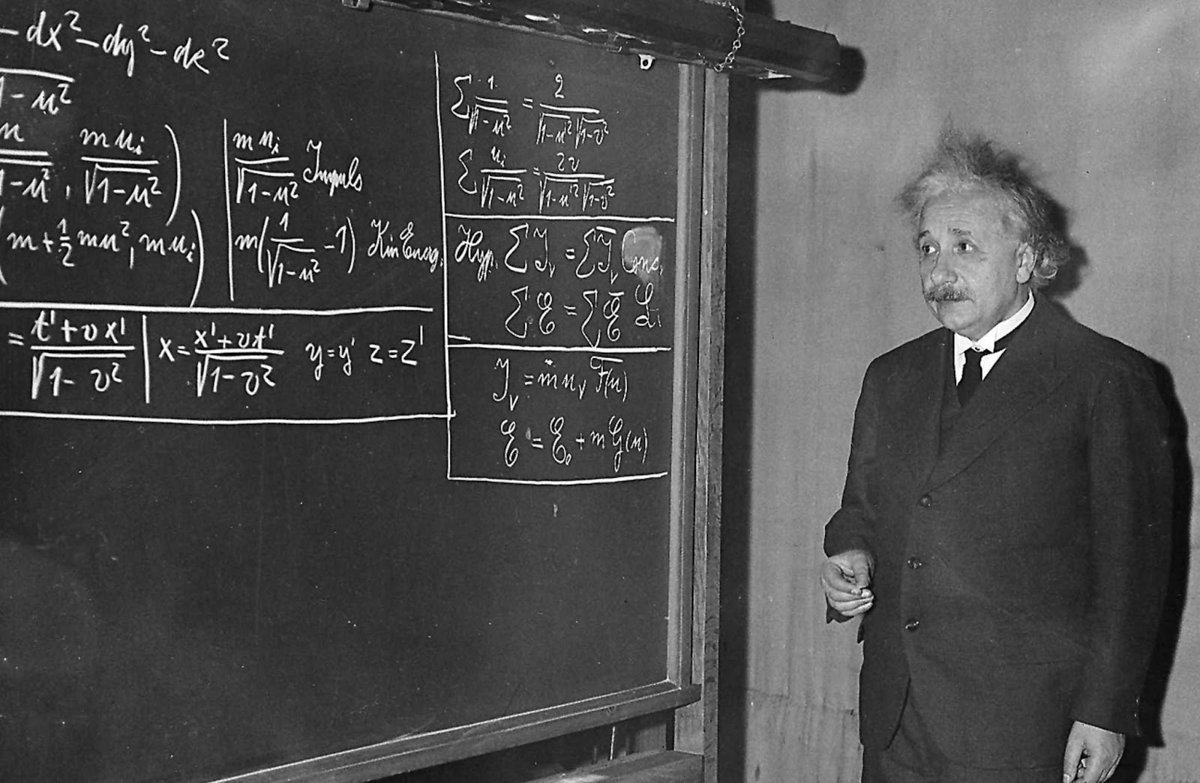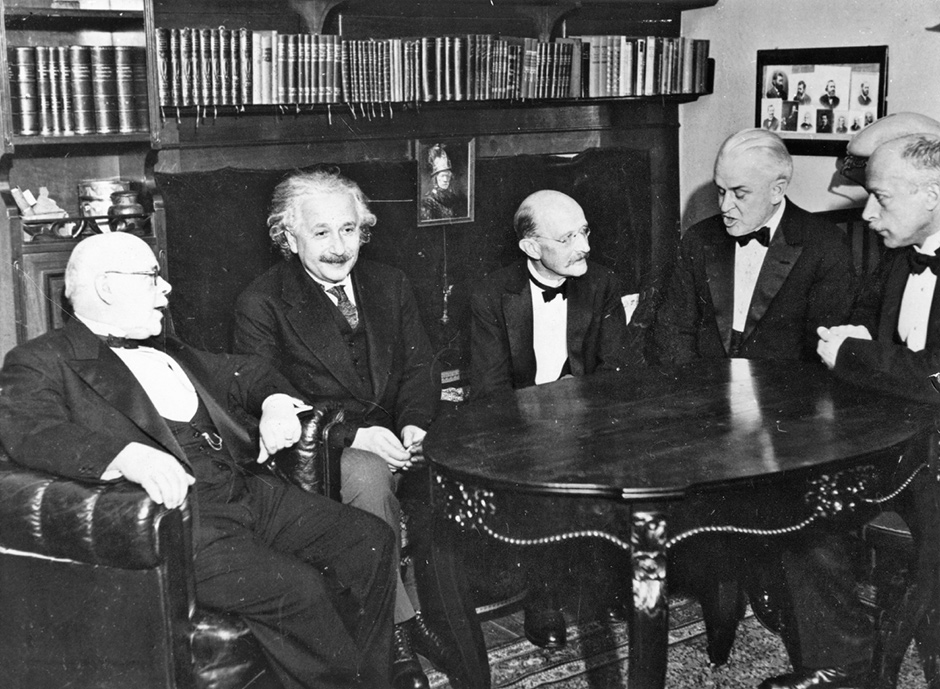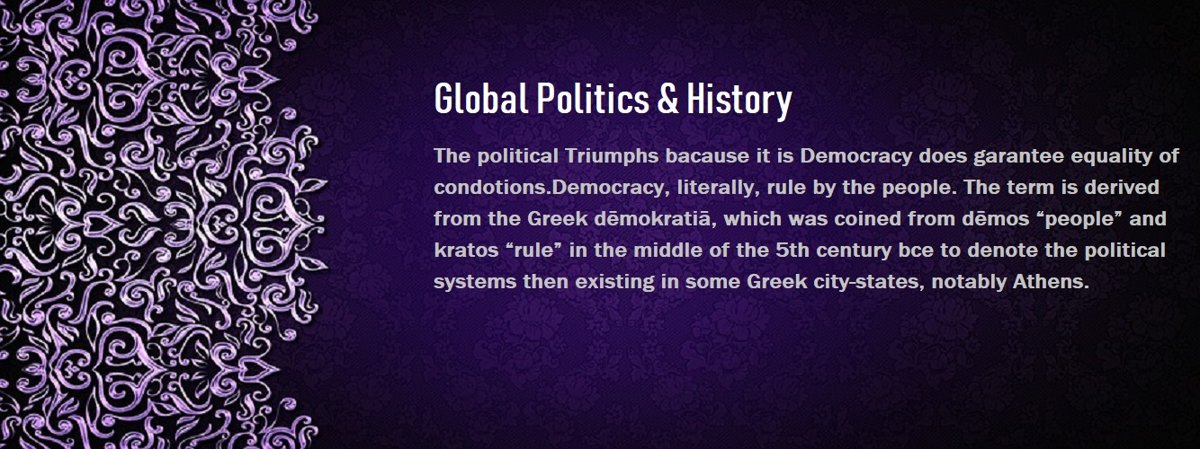ALBERT EINSTEIN WAS A GERMAN JEW,AMERICAN CITIZENSHIP, HE WAS EXPERT, PHYSICIST AND GENIUS.HE NEVER RETURNED TO HIS BIRTHLAND GERMANY.HITLER CONSIDERED HIM PUBLIC ENEMY NUMBER ONE.
February 10, 2019 at 3:14 pm,
No comments
 Albert
Einstein with his first wife Mileva Maric.So pragmatic was Einstein's
approach to love that when he found his 11 year marriage to Mileva Maric
floundering, he issued a list of outrageous rules he said would allow
them to stay together.
Albert
Einstein with his first wife Mileva Maric.So pragmatic was Einstein's
approach to love that when he found his 11 year marriage to Mileva Maric
floundering, he issued a list of outrageous rules he said would allow
them to stay together.Albert Einstein was born at Ulm, in Württemberg, Germany, on March 14, 1879. Six weeks later the family moved to Munich, where he later on began his schooling at the Luitpold Gymnasium. Later, they moved to Italy and Albert continued his education at Aarau, Switzerland and in 1896 he entered the Swiss Federal Polytechnic School in Zurich to be trained as a teacher in physics and mathematics. In 1901, the year he gained his diploma, he acquired Swiss citizenship and, as he was unable to find a teaching post, he accepted a position as technical assistant in the Swiss Patent Office. In 1905 he obtained his doctor's degree. During his stay at the Patent Office, and in his spare time, he produced much of his remarkable work and in 1908 he was appointed Privatdozent in Berne. In 1909 he became Professor Extraordinary at Zurich, in 1911 Professor of Theoretical Physics at Prague, returning to Zurich in the following year to fill a similar post. In 1914 he was appointed Director of the Kaiser. As the consequence of overworking, in 1928 Einstein developed a heart disease which took him almost a year to recover from. At the age of 17 Einstein also renounced his German citizenship to avoid military service. During his schooling with Jost Winteler, he became very close to the family and fell in love with Marie – Winteler’s daughter. He also enrolled in Zürich’s school after renouncing his German citizenship.At Zürich Einstein met some of his lifelong loyal friends. He also met Mileva Maric, a Serbian woman and his fellow student. Maric later became Einstein’s wife but their relationship was not really accepted by Einstein’s family because of the religious differences.Einstein and Maric had a daughter named Lieserl. Nothing is known about their daughter. Some say that the kid died of sickness while others say that the couple gave her up for adoption. Lieserl was born in 1902. When Lieserl was born, Einstein and Maric were not married.In 1902, Einstein’s financial conditions were awful. He did not have a job and his father’s company went bankrupt. That is when Einstein started tutoring children.Einstein eventually grabbed a Swiss clerical job after a recommendation from Marcel Grossman’s father. Marcel Grossman was Einstein’s lifelong friend.Einstein’s father died shortly after that because of illness but before death, approved of Einstein’s and Maric’s wedding. The couple got married in 1903. The next year they had a son named Hans Albert and in 1910 they had a second son named Eduard.The clerical job that Einstein actually took was in a Swiss patent office. His job was to evaluate patent applications for various electromagnetic devices. Einstein quickly mastered the job and had enough time to think about electrical-mechanical synchronization and electrical signal transmissions.During his study at the polytechnic school, Einstein went through the electromagnetic theories that were developed by James Maxwell – a Scottish Physicist.In 1929 after his 50th birthday he built a summer house in the municipality of Caputh where he lived with his family each year between spring and late autumn until the December of 1932.Even so, Albert Einstein is nowadays mostly associated with just one simple formula: E = mc2. Many call it the most famous formula in the world, and even people who have no idea what mass-energy equivalence is still know that one formula.However, as these 25 surprising Albert Einstein facts prove, there was a lot more to the man than a mathematical formula which he doesn’t even deserve total credit for. From his hatred of socks to the theft of his brain, these Albert Einstein facts reveal a lot you don’t know about history’s greatest thinker.He moved to the United States at a time when the Nazi regime put a $5,000 bounty of his head. He was even featured in a German magazine listing a roster of enemies of the state along with the phrase "Not yet hanged."In 1952, the state of Israel offered Einstein the position of president, but he declined saying in part.
 Einstein's
work is also known for its influence on the philosophy of science.
Einstein is best known in popular culture for his mass–energy
equivalence formula E = mc2 (which has been dubbed "the world's most
famous equation"). He received the 1921 Nobel Prize in Physics for his
"services to theoretical physics", in particular his discovery of the
law of the photoelectric effect, a pivotal step in the evolution of
quantum theory.
Einstein's
work is also known for its influence on the philosophy of science.
Einstein is best known in popular culture for his mass–energy
equivalence formula E = mc2 (which has been dubbed "the world's most
famous equation"). He received the 1921 Nobel Prize in Physics for his
"services to theoretical physics", in particular his discovery of the
law of the photoelectric effect, a pivotal step in the evolution of
quantum theory.
Einstein always appeared to have a clear view of the problems of physics and the determination to solve them. He had a strategy of his own and was able to visualize the main stages on the way to his goal. He regarded his major achievements as mere stepping-stones for the next advance.At the start of his scientific work, Einstein realized the inadequacies of Newtonian mechanics and his special theory of relativity stemmed from an attempt to reconcile the laws of mechanics with the laws of the electromagnetic field. He dealt with classical problems of statistical mechanics and problems in which they were merged with quantum theory: this led to an explanation of the Brownian movement of molecules. He investigated the thermal properties of light with a low radiation density and his observations laid the foundation of the photon theory of light.Apart from all his work Einstein still found time for playing music. Since his youth he played the violin and later he frequently was seen on the street carrying his violin case. He was an admirer of Bach and Mozart and, through continuous practice, he became a good violinist. Apart from his love for music he was a devoted sailor. Doing this just for fun, here did he find the time to think about problems of physics.His Theory of Relativity were much talked of. He received invitations and honours from all the world. There was rarely a magazine which did not report on his achievements with the highest praise. On the other hand, since 1920 Einstein and his Theory of Relativity became subject to vigorous attacks which mostly were founded on anti-Semitism. Even Nobel-prize laureates like Philipp Lenard and Johannes Stark publicly took up a hostile attitude towards Einstein and his theory and pleaded for a "German physics"From 1909 to 1916 Albert Einstein worked on a generalization of his Special Theory of Relativity. The results of his efforts were published in March 1916 in the paper "The Foundation of the General Theory of Relativity". This theory investigates coordination systems which experience acceleration relative to each other and also the influence of gravitational fields to time and space. Whereas the Special Theory of Relativity was still intelligible to the layman, this did not apply to the General Theory of Relativity. Moreover, due to the relatively small relativistic effects, this theory was difficult to verify experimentally. Einstein - or his General Theory of Relativity - predicted the perihelion motion of mercury, the gravitational red shift as well as the deflection of light in a gravitational field. He was convinced that light deflection by the gravitational field of the sun could be observed during a total solar eclipse. After several failed observations of total solar eclipses proof came in 1919: On May 29 of that year the English astronomer Arthur Stanley Eddington confirmed Einstein's prediction of light deflection when he observed a total solar eclipse on the volcanic island of Principe in the Gulf of Guinea in western Africa. A second expedition, led by Andrew Crommelin, observed this eclipse in Sobral, Brazil.Apart from all his work Einstein still found time for playing music. Since his youth he played the violin and later he frequently was seen on the street carrying his violin case. He was an admirer of Bach and Mozart and, through continuous practice, he became a good violinist. Apart from his love for music he was a devoted sailor. Doing this just for fun, here did he find the time to think about problems of physics.Einstein’s fame brought him lectureships throughout the world,it also made him the focus of attacks in an increasingly anti-Semitic and militaristic Germany. Fearing for his safety, he and his wife, Elsa, immigrated to the United States on October 17, 1933, where Einstein accepted a position at the Institute for Advanced Study in New Jersey. Although some Americans opposed Einstein’s immigration for his "radical” views, Einstein embraced the opportunities and freedom of his new nation. He cowrote a famous letter to President Franklin D. Roosevelt in 1939 advising him of the possibilities of developing an atomic bomb. On June 22, 1940, Einstein took his American citizenship test and gave a talk for the government’s I Am an American radio series; he was naturalized on October 1, 1940. After World War II, Einstein advocated nuclear disarmament and international cooperation. Once in the United States, Einstein and his wife helped other Jewish refugees to emigrate to the America. Einstein expressed mixed feelings about living in the United States. He felt privileged to live in a place as peaceful as Princeton, New Jersey, but at the same time felt guilty for being able to live peacefully while so many others had lives destroyed by the war. Nevertheless, Einstein remained in Princeton until his death in 1955.
 Max Planck, center, with Walther Nernst, Albert Einstein, Robert Andrews
Millikan, and Max Laue, all physicists and winners of the Nobel Prize,
Berlin, 1928.
Max Planck, center, with Walther Nernst, Albert Einstein, Robert Andrews
Millikan, and Max Laue, all physicists and winners of the Nobel Prize,
Berlin, 1928.
